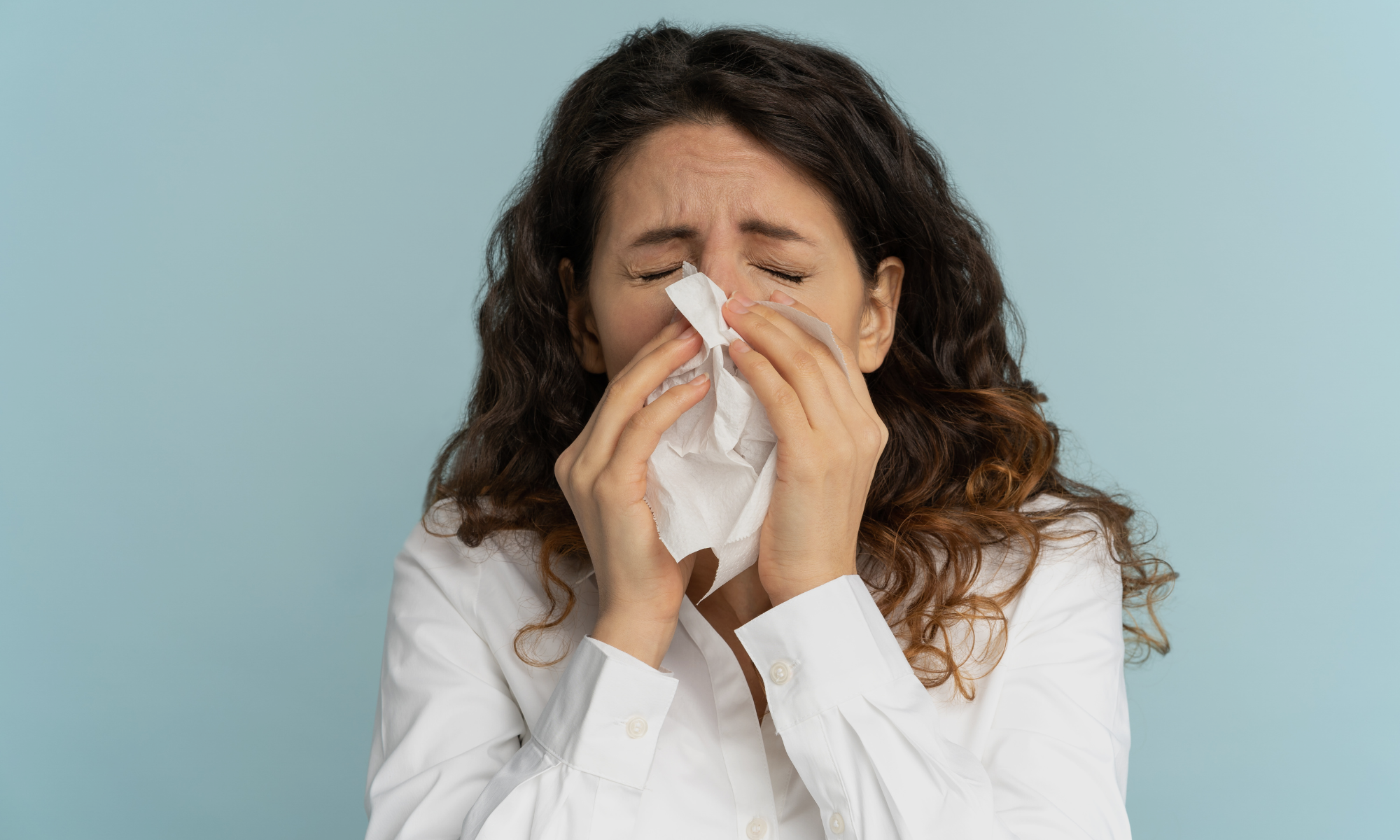Best Foods to Eat (and Avoid) for Menopause Weight Control

KEY TAKEAWAYS
- Menopause causes hormonal changes and muscle loss that slow metabolism and favor weight gain, especially around the belly.
- High-fiber foods, lean proteins, and healthy fats are your allies for weight control and symptom relief during menopause.
- Limiting processed foods, added sugars, and refined carbs can prevent insulin spikes and unwanted fat storage in midlife.
- Lifestyle factors like regular exercise, quality sleep, and stress management work hand-in-hand with diet for effective menopause weight management.
- With a holistic approach to nutrition, you can maintain a healthy weight and feel your best through the menopause transition, supporting long-term wellness.
Menopause is a natural phase of life, but for many women, it comes with frustrating changes, especially when it comes to weight. Research suggests that at least 50% of people going through menopause experience weight gain, with some studies estimating the number to be as high as 60–70%. The shift in hormones, particularly declining estrogen levels, can lead to slower metabolism, increased fat storage (especially around the midsection), and changes in hunger and satiety cues.
But here’s the good news: while menopause-related weight gain can feel inevitable, it isn’t out of your control. Your diet plays a major role in managing not only your weight but also other menopause symptoms like hot flashes, mood swings, bone loss, and fatigue. By choosing the right foods, you can support your body’s changing needs, maintain a healthy weight, and feel your best during this transition. Let’s explore how menopause affects your metabolism and outline the best foods to eat (and avoid) to help you stay in balance. Whether you’re looking to boost energy, manage cravings, or prevent weight gain, these dietary strategies can make all the difference.
What Changes to Expect During Menopause?

Menopause triggers significant hormonal shifts that affect how the body stores fat and burns calories. Estrogen levels decline, which changes fat distribution, weight is more likely to accumulate around the abdomen rather than the hips and thighs. At the same time, the natural loss of muscle with age slows down your metabolism, making it harder to maintain a healthy weight. In other words, your body might burn calories more slowly than it used to, even if you’re as active as before. This combination of lower estrogen and a slowing metabolism sets the stage for those stubborn extra pounds many women notice around midlife.
Beyond hormones, several age-related factors come into play. Lean muscle mass tends to decrease with each passing decade, especially if we don’t strength train, and muscle loss means fewer calories burned at rest. You might also find energy levels dip and stress levels rise during menopause, which can lead to less physical activity and more emotional eating. Sleep disturbances (a common menopause complaint) further complicate matters—poor sleep can drive up hunger hormones and cravings. All these changes mean that even women who have never struggled with weight may see the scale creep upward during menopause. Understanding these shifts is the first step; next, we’ll look at how to counter them with the right food choices.
“At least half of people going through menopause experience weight gain, so if you’re struggling with the scale, you’re certainly not alone.”
7 Best Foods for Menopause
A nutrient-rich diet is one of your best defenses against menopause-related weight gain. Focusing on whole, unprocessed foods can help boost metabolism, preserve muscle, and even balance hormones naturally. Below are seven of the best foods (and food groups) to include for menopause weight control and overall wellness.
1. High-Fiber Foods
High-fiber foods such as vegetables, fruits, whole grains, and legumes play a crucial role in menopause weight control. Fiber adds bulk to meals without added calories, helping you stay full longer and preventing overeating. It also stabilizes blood sugar by slowing digestion, which can reduce fat-storing insulin spikes. A diet rich in fiber supports healthy digestion and may even ease bloating. Besides weight management, fiber contributes to heart health (important as cardiovascular risk rises after menopause) and keeps cholesterol in check. Start your day with a bowl of oatmeal and berries or swap white rice for quinoa to painlessly boost your fiber intake.
2. Lean Proteins
Lean protein is essential during menopause to maintain muscle mass and support a steady metabolism. As estrogen levels drop, women tend to lose muscle more rapidly, so getting enough protein becomes crucial for preserving those calorie-burning muscles. Include sources like chicken breast, turkey, fish, eggs, and plant proteins (tofu, lentils, chickpeas) in your meals. Protein has a high satiety factor, keeps you feeling full and satisfied, which can prevent mindless snacking later on. Try to have some protein with every meal, whether it’s Greek yogurt at breakfast or grilled fish at dinner. Not only will this help with weight control, but protein also supports bone health and tissue repair, helping your body stay strong through menopause.
3. Healthy Fats

Not all fats are created equal. Healthy fats from foods like avocados, nuts, seeds, and olive oil can actually assist with weight management and hormone balance. These fats provide essential fatty acids that your body needs for hormone production (important when your natural estrogen is dipping). They also help you absorb fat-soluble vitamins and keep you full. For example, adding half an avocado or a drizzle of extra-virgin olive oil to your salad can make the meal more satisfying, so you’re less likely to reach for a sugary snack later. Nuts and seeds (like almonds, walnuts, chia, and flaxseed) offer omega-3 fatty acids, which have anti-inflammatory properties that may ease joint pain or mood swings during menopause. Enjoy healthy fats in moderation, a small handful of nuts as an afternoon pick-me-up or using olive oil instead of butter in cooking are simple ways to include them.
4. Calcium-Rich Foods
Menopause accelerates bone loss due to the drop in estrogen, so calcium-rich foods become especially important. Dairy products like milk, yogurt, and cheese are classic calcium sources that support bone density and help reduce the risk of osteoporosis. If you’re lactose intolerant or avoid dairy, you can get calcium from fortified plant milks, tofu made with calcium sulfate, almonds, or leafy greens such as kale and broccoli. Aim for about 1,200 mg of calcium per day in menopause. Not only will calcium keep your bones strong, but many calcium-rich foods (like Greek yogurt, which also contains protein) can aid in weight control by keeping you satiated. Pair calcium intake with adequate vitamin D (from sunlight or fortified foods) to enhance absorption. In practice, something as simple as a cup of low-fat yogurt with fruit or a tofu-and-veggie stir-fry can go a long way in protecting your bones and waistline simultaneously.
5. Phytoestrogen-Rich Foods
Phytoestrogens are plant compounds that mimic estrogen in the body, and they can be allies during menopause. Foods like soy (tofu, tempeh, edamame), flaxseeds, and chickpeas contain these natural estrogens. Including them in your diet may help balance hormones and ease menopause symptoms. For instance, some women find that eating soy foods helps reduce hot flashes or night sweats. Phytoestrogens might also offer benefits for weight control and bone health: by giving a mild estrogen-like effect, they could mitigate the abrupt metabolic slow-down. Research suggests that adding more phytoestrogen sources to your diet may reduce menopause symptoms or the risk of osteoporosis for those with low estrogen. Try a smoothie with soy milk, sprinkle ground flaxseed on your oatmeal, or swap meat for tofu in a stir-fry. These foods are also nutritious in their own right, rich in protein, fiber, and healthy fats, making them a smart addition for overall health.
6. Antioxidant-Rich Foods

Menopause is a time of heightened oxidative stress in the body, partly due to aging and hormonal changes. Antioxidant-rich foods can help combat this oxidative stress and reduce inflammation. Brightly colored fruits and vegetables (like berries, cherries, oranges, bell peppers, spinach, and sweet potatoes) are packed with antioxidants like vitamin C, vitamin E, and beta-carotene. These nutrients protect your cells from damage and may help ease menopause symptoms such as skin dryness and fatigue. From a weight control perspective, loading up on antioxidants often means eating more produce, which generally means more fiber and fewer empty calories.
For example, berries satisfy a sweet tooth with far less sugar than a cookie, and they provide valuable nutrients. Green tea is another great source of antioxidants (with less caffeine than coffee), and spices like turmeric and ginger also have antioxidant effects. By making your plate as colorful as possible, you’ll nourish your body and support your metabolism through menopause.
7. Hydration
Never underestimate the power of hydration. Water is essential for nearly every bodily function and can be a secret weapon for menopause weight control. Staying well-hydrated supports your metabolism and aids digestion, helping your body efficiently convert food into energy rather than storing it as fat. Drinking enough water can also prevent false hunger signals. Often we think we’re hungry when we’re actually thirsty.
For women in menopause, hydration has extra perks: it can help manage headaches, reduce bloating, and even support skin health (since skin can become drier as estrogen drops). Aim for at least 8 glasses of water a day, more if you’re active or live in a hot climate. If plain water bores you, try herbal teas or infusing water with slices of citrus, cucumber, or mint for a refreshing twist. Also consider foods with high water content, like watermelon, cucumbers, and lettuce, which contribute to hydration. By keeping a water bottle handy and sipping throughout the day, you’ll curb unnecessary snacking and help your body feel its best.
8 Foods to Avoid for Menopause Belly Fat
During menopause, certain foods can make weight gain more likely, especially around the belly (visceral fat). Hormonal changes can increase insulin resistance and make your body more sensitive to high-calorie, high-sugar foods. This means that the kinds of treats you once enjoyed with impunity might now quickly add to your waistline. Even without overeating, diets high in refined carbohydrates and added sugars can worsen insulin resistance and promote weight gain. To keep menopause belly fat in check, it’s wise to limit or avoid the following categories of foods. Cutting back on these doesn’t mean deprivation—it just means finding smarter substitutes that won’t sabotage your goals.
1. Processed Foods
Highly processed foods are one of the biggest culprits behind weight gain at any age, and they pose extra challenges during menopause. These include packaged snacks, fast food, sugary cereals, and ready-to-eat meals that are often loaded with empty calories, unhealthy fats, and sugar. Processed items are typically low in the nutrients your body truly needs (like fiber and protein) and high in additives that can disrupt your metabolism. Eating a diet heavy in processed foods can cause quick spikes and crashes in blood sugar, leading to increased fat storage and constant cravings. Over time, this pattern contributes directly to belly fat. Moreover, many processed foods contain chemicals and preservatives that may promote inflammation, making menopause symptoms like joint pain or bloating worse.
Alternatives: Focus on whole foods instead. Swap that bag of chips for a handful of nuts or air-popped popcorn, and choose whole-grain bread over white bread. When you have a craving, try to “upgrade” it, for example, have dark chocolate and almonds instead of a candy bar. By cooking at home and using fresh ingredients, you’ll automatically cut down on processed fare and help keep menopausal weight gain at bay.
2. Spicy Foods
Spicy foods might not directly cause weight gain, but they can exacerbate common menopause symptoms that indirectly affect your weight and comfort. Many women find that spicy meals trigger hot flashes or night sweats, likely due to how capsaicin (the compound in chili peppers) affects body temperature. Eating very spicy food can make you flush, sweat, and feel uncomfortable, which is the last thing you want if you’re already dealing with hot flashes. Additionally, spicy dishes (especially from restaurants or takeout) are often high in oil, salt, or sugar to balance the heat, which can add extra calories. If spicy food disrupts your sleep or causes you to drink excess cold sugary drinks to cool down, it could indirectly contribute to weight gain and water retention.
Alternatives: Use herbs and mild spices for flavoring instead of ultra-hot ingredients. Ginger, turmeric, basil, or cumin can add depth to your cooking without the burn. If you love a little kick, opt for milder peppers or remove the seeds (where most of the heat is) when cooking. This way, you can enjoy tasty meals that won’t set off a fire (in your mouth or your body).
3. Refined Carbohydrates
Refined carbohydrates like white bread, pasta, white rice, pastries, and other baked goods made with white flour can be troublesome during menopause. These foods have been stripped of fiber and nutrients, so they digest quickly and spike your blood sugar. In response, your body releases a lot of insulin, a hormone that promotes fat storage, especially in the abdominal area. Over time, frequent insulin spikes can lead to insulin resistance, making it even harder to lose weight around the middle. A diet high in refined carbs is linked to increased cravings and hunger swings, meaning you’re likely to eat more overall. During menopause, when your metabolism is slowing, those extra calories stick around more easily as belly fat.
Alternatives: Wherever possible, replace refined grains with whole grains. Choose whole-wheat bread and pasta, brown or wild rice instead of white, and experiment with ancient grains like quinoa, barley, or millet. These swaps will give you more fiber (helping you feel full and steadying your blood sugar) and more vitamins. If you’re baking, try mixing in whole-grain flour or almond flour to boost nutrition. By keeping your carb choices complex and high-fiber, you’ll have more consistent energy and help your body burn fat rather than store it.
4. High-Sugar Foods

Foods high in added sugars are a major driver of weight gain and specifically belly fat. Candy, cookies, cakes, donuts, ice cream, and sugary drinks flood your system with simple sugars that your body must quickly process. The result? Blood sugar soars and then crashes, leaving you tired, cranky, and craving even more sugar. During menopause, these effects can be amplified. Excess sugar in your diet not only contributes to extra calories (and thus weight gain) but also might worsen hormonal imbalances. High sugar intake has been linked to increased inflammation, which can intensify symptoms like mood swings or fatigue. It’s also worth noting that sugar-sweetened beverages (sodas, sweet teas, flavored lattes, etc.) are sneaky contributors to belly fat. Liquid calories add up fast and don’t fill you up at all.
Alternatives: Tame your sweet tooth with natural options. Opt for fresh fruit to satisfy cravings for dessert; the fiber in fruit helps slow sugar absorption. If you want something more decadent, try a piece of dark chocolate (low in sugar and offers antioxidants) or Greek yogurt with a drizzle of honey. For beverages, switch to water, unsweetened tea, or sparkling water with a splash of fruit juice. Reading labels can help too. Sometimes you’ll find that your favorite yogurt or cereal has lots of added sugar, and you can then choose a lower-sugar version. Small cuts in sugar can yield big results in controlling menopause weight gain.
5. Saturated Fats
Saturated fats—found in foods like fatty cuts of red meat, sausages, bacon, butter, cream, and full-fat cheese—can be problematic for menopausal women when eaten in excess. These fats tend to be high in calories and can contribute to increased cholesterol levels and cardiovascular risk, which is already higher after menopause. Diets rich in saturated fat are often linked to weight gain and abdominal fat storage. For example, regularly consuming heavy, fried foods or large portions of marbled steak can make it harder to maintain a healthy weight, given their calorie density. Moreover, saturated fats can promote inflammation in the body, potentially worsening menopause symptoms such as joint aches or even hot flashes for some women.
Alternatives: Focus on replacing saturated fats with healthier fats whenever possible. Choose leaner proteins like chicken, fish, or plant-based options instead of high-fat meats. Use olive oil or avocado oil for cooking in place of butter. If you enjoy dairy, consider low-fat or skim versions of milk and yogurt, or have smaller portions of full-fat cheeses. For instance, swap a bacon breakfast for oatmeal topped with nuts and berries; you’ll cut saturated fat and gain fiber and nutrients. These changes support heart health and can make a noticeable difference in controlling belly fat.
6. Alcohol
Many women are surprised to learn that alcohol can significantly impact menopause weight control. Alcoholic drinks are often referred to as “empty calories”—they provide lots of calories (7 per gram, almost as much as pure fat) with no nutritional value. Whether it’s wine, beer, or cocktails, those calories add up quickly and can contribute to fat accumulation around the midsection (hence the term “wine belly”). Alcohol can also interfere with your body’s fat-burning ability; when you drink, your liver prioritizes processing the alcohol over other metabolic tasks, temporarily halting fat metabolism. Additionally, drinking can lower inhibitions and increase appetite, leading to late-night snacking or less healthy food choices. Beyond weight, alcohol might worsen menopause symptoms like sleep disturbances and mood swings—an extra glass of wine in the evening could make your night sweats or insomnia more pronounced.
Alternatives: You don’t need to cut alcohol completely if you enjoy it, but moderation is key. Limit yourself to one drink occasionally, and opt for lower-calorie choices (a glass of dry wine or a vodka soda with lots of ice and lemon). Try alcohol-free mocktails or sparkling water with a splash of juice for a festive feel without the booze. Also, remember to drink water in between alcoholic drinks to stay hydrated and slow down consumption. By reducing alcohol intake, you’ll save calories and likely sleep better, both of which help in managing weight during menopause.
7. Caffeine
A morning cup of coffee is a routine for many, but excess caffeine can be counterproductive during menopause, especially if you’re struggling with weight or other symptoms. Caffeine itself doesn’t contain calories, but it can impact your body in ways that influence weight gain. High caffeine intake can worsen anxiety and disrupt sleep. Poor sleep and chronic stress (elevated cortisol levels) have been linked to weight gain and increased belly fat. If that 3 p.m. coffee or energy drink is keeping you up at night, it might indirectly cause you to gain weight over time due to hormonal effects and late-night snacking from being awake. Caffeine can also trigger hot flashes in some women and make you feel jittery or irritable. Many caffeinated beverages are also vehicles for sugar and fat (like sugary coffeehouse lattes, sweet tea, or energy drinks loaded with sweeteners) adding to your calorie intake.
Alternatives: You don’t have to give up caffeine entirely, but consider cutting back. Switch that second cup of coffee to decaf or green tea (which has less caffeine and provides antioxidants). Try herbal teas, like chamomile or peppermint, especially in the evening to promote relaxation. If you rely on caffeine for an energy boost, make sure you’re eating balanced meals and staying hydrated. Often an energy slump can be fixed with a healthy snack or a walk outside instead of another coffee. By managing caffeine, you may sleep more soundly and feel calmer, which is beneficial for weight control and overall well-being.
8. High-Sodium Foods

Foods that are very high in sodium can lead to water retention and bloating, which is uncomfortable and can mask progress in weight loss efforts. During menopause, many women already contend with bloating due to hormonal fluctuations, so excess salt makes it worse. Processed meats (like deli ham, bacon, hot dogs), canned soups, salty snacks (chips, pretzels), and fast foods are notorious for their high sodium content. A high-sodium diet may not directly cause fat gain, but it does often go hand-in-hand with processed food consumption (which, as noted, can cause weight gain). Moreover, too much salt can raise blood pressure (a health risk that becomes more significant post-menopause). You might notice that after a salty restaurant meal, your rings feel tight or your scale jumps up a pound from water weight.
Alternatives: Cut back on added salt and steer towards fresh, whole foods. Cook at home using herbs, garlic, lemon, and spices to flavor your food instead of relying on salt. Choose low-sodium or no-salt-added versions of broths, canned beans, or sauces when possible. Rinse canned vegetables or beans to wash off some sodium. If you crave something crunchy, choose unsalted or lightly salted nuts or air-popped popcorn with herbs. These small adjustments can dramatically reduce your sodium intake. Over time, your taste buds will adjust, and you’ll start appreciating the natural flavors of food more. The payoff will be less bloating, a trimmer-feeling tummy, and better heart health.
“Lower estrogen levels mean weight is more likely to accumulate around your abdomen, but a nutrient-dense diet and active lifestyle can help you take control."
Additional Tips for Weight Control
-
Stay Active with Exercise: Engage in regular physical activity, combining cardio and strength training. Aerobic exercise (like brisk walking, dancing, or swimming) helps burn calories, while strength training builds muscle that boosts your metabolism. Even simple habits like taking the stairs and walking daily can make a difference.
-
Prioritize Sleep: Aim for 7–8 hours of quality sleep per night. Good sleep regulates hunger hormones and reduces stress, making it easier to avoid overeating. Develop a calming bedtime routine and keep your bedroom cool and dark to combat menopause-related insomnia.
-
Manage Stress Levels: Practice stress-reduction techniques such as yoga, meditation, deep breathing, or journaling. Chronic stress elevates cortisol, a hormone linked to increased abdominal fat. By keeping stress in check, you’ll support hormonal balance and make healthier food choices.
-
Watch Portion Sizes: Metabolism tends to slow in your 50s, so portion control is crucial. You may need about 200 fewer calories per day in your 50s than you did in your 30s. Use smaller plates, serve yourself a reasonable portion, and listen to your body’s fullness cues to avoid accidental overeating.
-
Eat Mindfully: Slow down and savor your meals without distractions. Mindful eating helps you recognize true hunger versus emotional cravings. Chew thoroughly and pause between bites. This gives your brain time to register satiety, preventing you from overeating and helping with digestion.
-
Stay Consistent and Patient: Weight control during menopause is a gradual journey. Stay consistent with healthy habits and don’t be discouraged by minor fluctuations. Regularly monitor your progress (for instance, with a weekly weigh-in or how your clothes fit) and celebrate small victories. Remember that sustainable lifestyle changes will yield results over time.
Navigating menopause is so much easier when you have the right nutrition on your side. By focusing on wholesome foods and mindful habits, you’re not just controlling weight—you’re nurturing your overall health during this new life chapter. At Roots Nutrition, we believe in empowering women with science-backed, personalized nutrition solutions for every stage of life. Nutrition is a powerful form of self-care, and it’s at the heart of our mission to promote holistic health. Embrace these dietary changes and remember that you’re not alone on this journey.
Common Questions About Menopause Weight Control
What are the best foods to eat during menopause to lose weight?
Focus on nutrient-dense foods that support metabolism and fullness. The best foods include high-fiber fruits and vegetables, lean proteins (such as fish, chicken, and legumes), healthy fats from avocado and nuts, and calcium-rich options like low-fat dairy or fortified plant milks. These foods help manage hunger, stabilize blood sugar, and provide essential nutrients for a healthy menopause transition.
How can I lose menopause belly fat through diet?
To tackle menopause belly fat, prioritize a balanced diet and limit trigger foods. Emphasize whole grains over refined carbs, plenty of fiber, and adequate protein to keep you full and preserve muscle mass. Avoid excess sugars, alcohol, and processed foods that contribute to visceral fat. Pairing a healthy diet with regular exercise (especially strength training) is the most effective way to reduce belly fat in menopause.
Which foods should I avoid to prevent weight gain during menopause?
It’s wise to cut back on foods that are high in empty calories or that disrupt your metabolism. Avoid or limit refined carbohydrates, sugary snacks, and sweetened drinks, as they can spike insulin and encourage fat storage. Also be cautious with high-sodium processed foods (which cause bloating), heavy saturated fats, and excessive alcohol. These items can all contribute to menopause weight gain and belly fat.
Is it harder to lose weight during menopause?
Many women find that losing weight during menopause is more challenging due to hormonal changes and a slower metabolism. Lower estrogen levels and age-related muscle loss mean your body burns fewer calories at rest. However, weight loss is still very achievable with adjustments: a healthy diet, portion control, and increased physical activity (especially strength training) can overcome those biological hurdles. Patience and consistency are key, as results may come more gradually than before.
Can a menopause diet help with other symptoms too?
Yes, a well-planned menopause diet can ease several symptoms in addition to weight gain. Eating foods rich in calcium and vitamin D helps counter bone loss and reduce osteoporosis risk. Phytoestrogen-rich foods (like soy and flaxseed) may alleviate hot flashes and mood swings for some women. Cutting back on caffeine and alcohol can improve sleep and reduce anxiety. Overall, good nutrition supports better energy levels, mood stability, and health during menopause, complementing any medical treatments you use.
For those seeking a more personalized approach to digestive health and overall wellness, Roots Nutrition offers expert-curated supplement packages tailored to your unique needs. Founded by Dr. Romeo Brooks, a pioneer in holistic health, Roots Nutrition combines decades of expertise in natural healing with scientifically-backed solutions. Discover how our natural supplements can support optimal digestion, detoxification, and vitality—empowering you to achieve your health goals.





